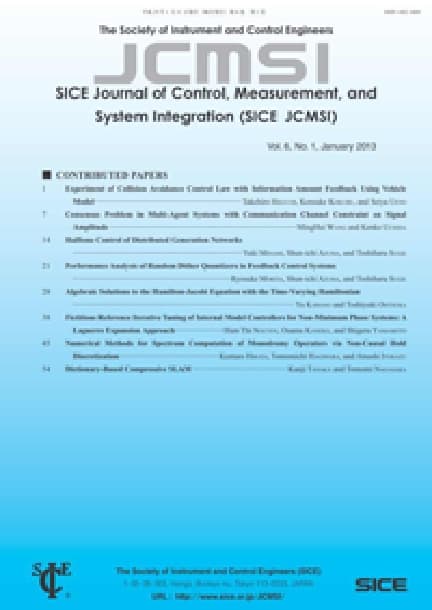A Recursive Substitution Method for a Class of Nonlinear Optimal Control Problems
Toshiyuki OHTSUKA
pp. 189-194
DOI:
10.9746/jcmsi.8.189Abstract
A method of solving finite-horizon optimal control problems involving a class of discrete-time rational systems is proposed. A sequence of algebraic equations for the unknown costate at each time is constructed backward, starting from the terminal condition, by using the recursive substitution of mappings in the optimality conditions. This recursive substitution can be viewed as a generalization of a classical solution to finite-horizon linear quadratic control by means of a transition matrix. The existence and uniqueness of locally optimal state feedback laws defined via algebraic equations for the costates can be guaranteed if second-order sufficient conditions for optimality hold along a nominal trajectory.









